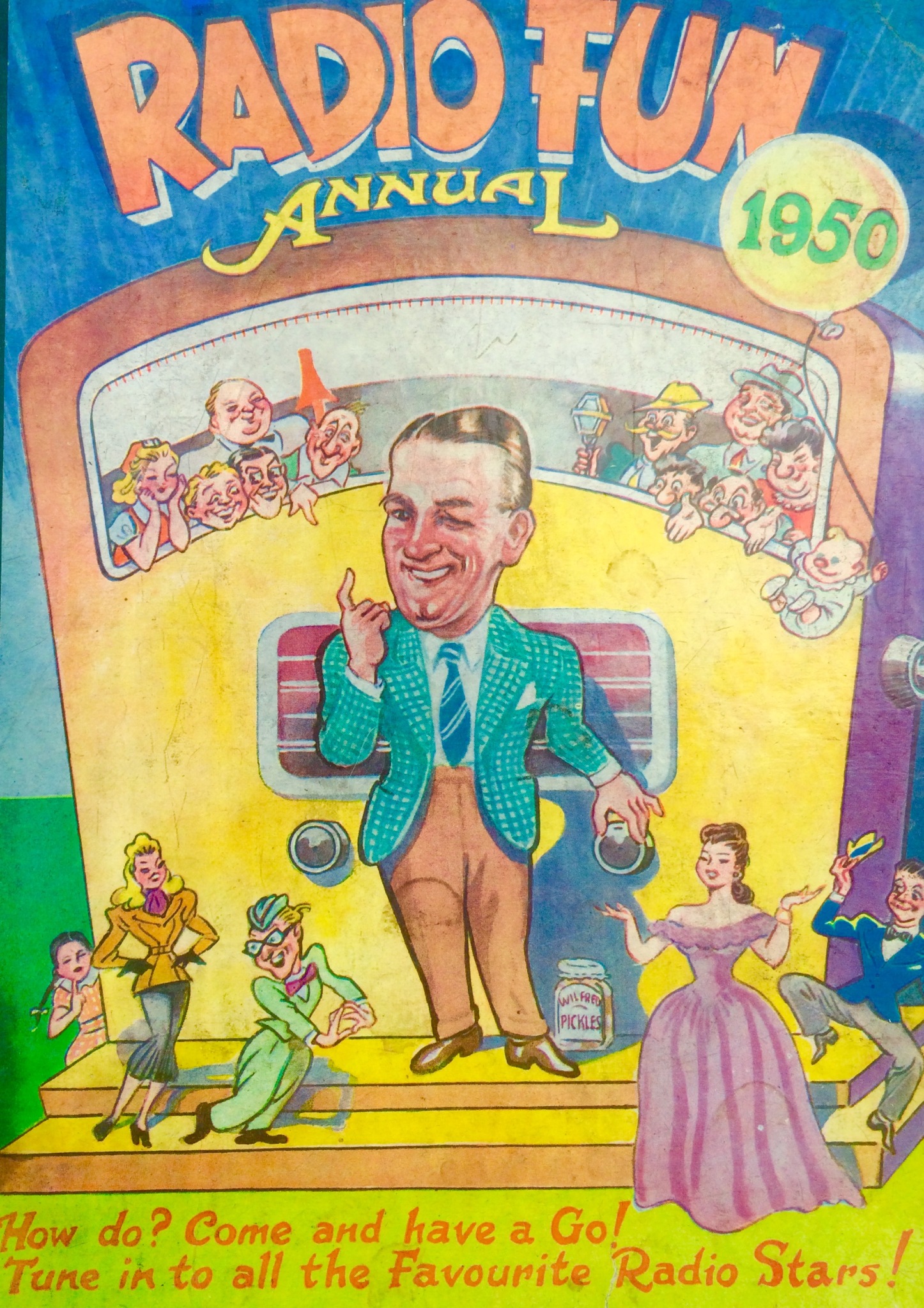It all began for me in a Lancashire church one Sunday evening 40 years ago on October 10th,1982.
This was my first professional job. I had been given my own show on the brand new commercial radio station for Lancashire, Red Rose Radio.
I hadn’t been to church in a long time, but here I was spending the first of many Sunday evenings at St Paul’s Church in Preston. The old building was beautifully restored and seemed to light up like a beacon across the area it served. No longer a place of worship, now the latest in a growing industry of commercial radio stations opening around the U.K.
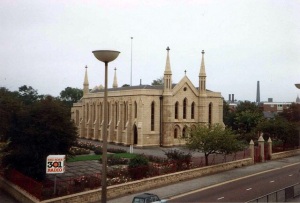
Unless you work in radio you can’t imagine the excitement of how it feels to be given your own show. There I was on the schedule, Sunday 8pm till midnight.
I was so proud to see my name on on the same schedule as legendary broadcasters like Keith Macklin, the Programme Controller who gave me my first break, and Dave Lincoln, Head of Music.
Dave Lincoln from Liverpool’s Radio City was part of the line up on Red Rose 301, along with Steve Collins, Alan Beswick, Baz Reilly and Sally Moon.
I remember Dave showing me how the desk worked – the careful business of dropping a stylus on the record and how far back you had to turn the disk so that the turntable had time to pick up speed. I was already a fan of Dave’s presentational style so I couldn’t believe I was now working with him.
Of course I had already learned so much in hospital radio at Radio Whiston near Liverpool.
But this night in October was my first paid, professional gig. I would happily have done it for nothing, the twenty five pound shift fee was just incidental.
Then the responsibility of the whole thing hit me when the taped classical programme scheduled before me came to an end. The realisation I had to keep the new station on air and carry the torch till closedown. Or would it all come crashing down around me ?
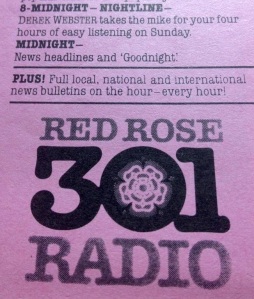
Meanwhile, the clock counted down to 8pm when I would open a fader to take the news from LBC London. In those days we had local bulletins with a journalist on duty until midnight. We would take national Independent Radio News from London, which ran for three minutes, followed by a two minute local bulletin from the Red Rose newsroom.
So there I was, about to take control of the airwaves at five past eight. As the news ended I started a jingle into the very first record of the evening. I had a specially taped announcement from my hospital radio friend and colleague John Gillmore.
Some friends had gathered at a party to listen to my big moment. But what they heard after the opening jingle was …….silence … radio static and a few crackles.
In radio, twenty seconds can seem like a long time, which was how long it took before the first record I ever played on professional radio began to spin. It was the new single by The Boystown Gang, a cover of ‘Signed Sealed Delivered’. Shame I didn’t choose the Stevie Wonder original.
The disc’s failure to start on cue was because I set it up too far in advance, and failed to check after knocking the stylus back a groove. Perhaps I should have paid more attention to Dave Lincoln in the first place!
And so Derek Webster was launched as a professional broadcaster, on 301 metres medium wave and 97.3 VHF across the airwaves of Lancashire.
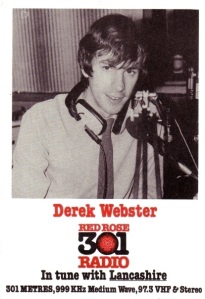
It felt so exciting and I began to enjoy the experience, becoming more confident as the phones started ringing. It seemed everyone loved it, even the security man, now kept from his slumber by phone calls lighting up the switchboard. He must have felt part of it.
It wasn’t all plain sailing of course. One thing I soon discovered in radio is that when you become too confident the unexpected comes along and knocks you off your pedestal.
Among the broadcasting sins committed on my first radio programme are some classics.
I miss timed an hour, playing the Eagles’ ‘Lying Eyes’, a six minute story song starting at three minutes to the hour. These bulletins simply can’t wait and everything stops for the news, so when you fade a song like this, it’s like stopping a film halfway through. One sarcastic listener called up and asked if I could be play the other half of Lying Eyes next week.
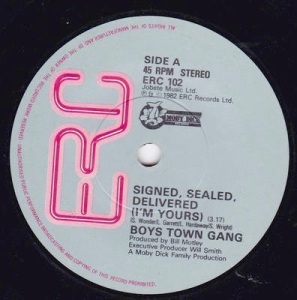
Another way to annoy listeners is to mispronounce place names. On a local radio station the listeners expect you to know these things.
After turning Lancashire places like Penwortham into “Pen-worth-ham” and Euxton into “Yoox-ton” ( It should be pronounced: “Exton”), I was visited in the studio by Julian Allitt. He was the News Editor who knew his patch very well and seemed a little annoyed.
Julian had a very deadpan expression with an air of disgust, even when he was being amiable – think John Cleese but not as silly. He walked into the studio, handed me a pronunciation guide and said wearily: “Please stop f…..g up the pronunciation of places, It’s been going on all week and it’s got to stop”.
With that he walked out, leaving me to believe I had really messed up. Perhaps I shouldn’t presume to tell the listeners I would be back again next week.
But when the time came to close down at midnight and say goodnight I felt I had handled it quite well. I finished with a coded message to my friends, which involved shuffling paper just before the overnight test tone came on.
In the weeks to come I would learn that you can’t always rely on the adrenalin that gave such a lift on that first programme. Being a professional broadcaster means giving your best, even when the world appears to be conspiring against you.
Some of the best advice ever given to me was by David Maker, the launch MD of Red Rose Radio, before my first show.
He said, when you are on the radio always put yourself in the mind of the listener. Imagine what they might be doing when you are on air. Try to imagine how they feel and react to that.
David Maker’s advice stayed with me throughout my career, since that very first professional radio programme I presented at Red Rose Radio in the old church at St Paul’s Square, Preston, Lancashire.















